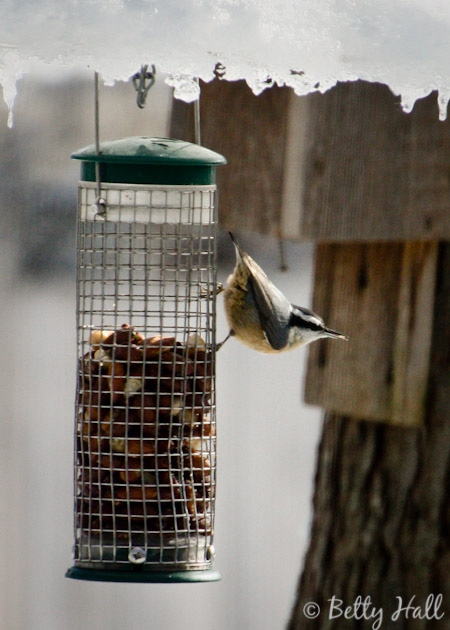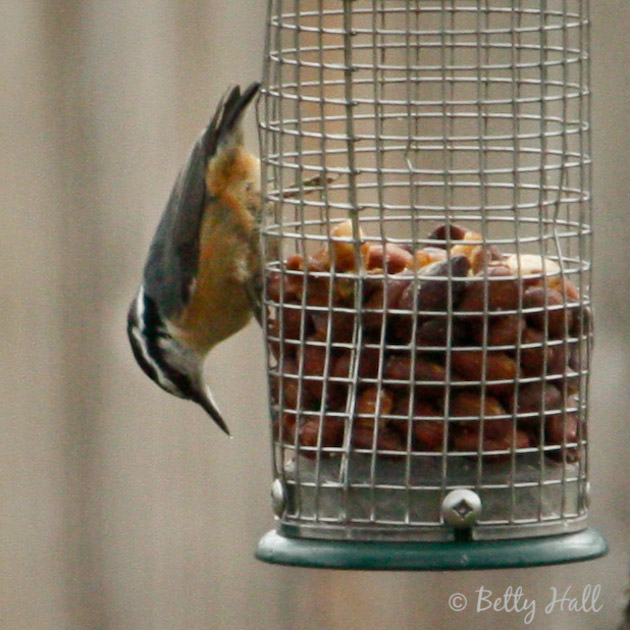We enjoy our backyard birds year round. This is especially true in the winter when there’s not a lot else going on. Since late November we’ve been enjoying a pair of red-breasted nuthatches (Sitta canadensis), the first time I remember seeing these birds.

It’s fun to watch them, although I have to look fast because they move quickly. They seem to especially enjoy our nut feeder. They also grab a sunflower seed now and then and search for insects along the trunks and large branches of our silver maple (Acer saccharinum).
In spite of their name, their breasts are more cinnamon or light-orange rather than red, a contrast to the white-breasted nuthatches which are more common. The black eye stripe is also distinctive.

According to Wikipedia, these nuthatches “are often year-round residents in coniferous forests across Canada, Alaska and the northeastern and western United States.” However, at times they migrate south for the winter, apparently in search of food, which probably explains why we have them in the backyard this year.
We’re glad for all our birds and the red-breasted nuthatches are an extra treat this year. Is anyone else seeing these birds?


Beautiful. What a treat!
Thanks, Sara. They are fun to watch.
Indeed Betty, we also have the all year in Southern Ontario. A delight to watch!
Glad to think of you enjoying them year round, Louise. I’d be interested to know if you see them in the suburbs or if they stay primarily in the forest.
Betty,
Nice photos! I have these little guys most every winter, here off Harrodsburg Rd. They prefer safflower from in a feeder in my Norway Spruce to all other food I ooffer which includes peanuts, sunflower and a suet mixture. They always bring a smile to my face as I watch their antics as they search for just the right spot in which to wedge their seeds.
Glad to hear from you, Jackie. Given that we live fairly close, I find it interesting that you often have the nuthatches and that this year is a first for us. Also interesting that they like your safflower seeds and don’t seem interested in ours. However, we put our safflower on the ground instead of a feeder and that could be the difference.
We are seeing these here in upstate New York for the first time this year as well! Great photos. I posted some pictures of ours at my nature blog:
http://www.discovering-nature.net/2013/01/07/red-breasted-nuthatch/
I enjoyed your blog, Janet. Glad to hear you, too, are enjoying these birds in New York.